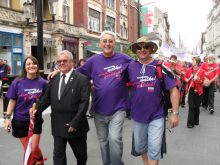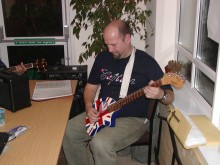 As part of our Wired In strategy, my colleagues and I launched the Wired In To Recovery online community in November 2008. Our initial aims with Wired In To Recovery were to:
As part of our Wired In strategy, my colleagues and I launched the Wired In To Recovery online community in November 2008. Our initial aims with Wired In To Recovery were to:
- Highlight role models who show that recovery from addiction is possible, and illustrate the multitude of paths to recovery.
- Provide information and tools that help people better understand and use the options they have to overcome the problems caused by their own, or a loved one’s, substance use.
- Create an environment in which people can inspire and learn from each other and provide mutually beneficial support.
- Establish a ‘people’s journalism’, or Voice of Recovery, which acts as a strong source of advocacy both for recovery and the Recovery Movement.
- Identify key individuals who would join, or collaborate with, Wired In to help us realise our ambitions.

 In my third blog post focusing on what I learnt from the treatment agency BAC O’Connor back in 2004, I focus on two themes. Firstly, how staff deal with people who relapse during the treatment programme. Secondly, how the agency works with ‘clients’ to help them integrate (back) into their community.
In my third blog post focusing on what I learnt from the treatment agency BAC O’Connor back in 2004, I focus on two themes. Firstly, how staff deal with people who relapse during the treatment programme. Secondly, how the agency works with ‘clients’ to help them integrate (back) into their community. This blog post is taken from part of a chapter in my recent eBook
This blog post is taken from part of a chapter in my recent eBook  I continue my story about what I learnt about addiction recovery and treatment from Noreen Oliver, and her staff and clients, during my visits to the structured day care programme at BAC O’Connor back in 2004. (See
I continue my story about what I learnt about addiction recovery and treatment from Noreen Oliver, and her staff and clients, during my visits to the structured day care programme at BAC O’Connor back in 2004. (See 
 I’ve been away visiting family this weekend and haven’t had a chance to prepare a new set of blog posts for this week. I therefore thought I would re-post some of my old favourites from the past this week, which will give me time to prepare new ones for next week.
I’ve been away visiting family this weekend and haven’t had a chance to prepare a new set of blog posts for this week. I therefore thought I would re-post some of my old favourites from the past this week, which will give me time to prepare new ones for next week.  I met Mike Blanche in around 2003 and he was the first person to help me understand the impact of a person’s substance use problem on family members. Mike was an inspiring figure who had played a key role in the setting up of
I met Mike Blanche in around 2003 and he was the first person to help me understand the impact of a person’s substance use problem on family members. Mike was an inspiring figure who had played a key role in the setting up of 











